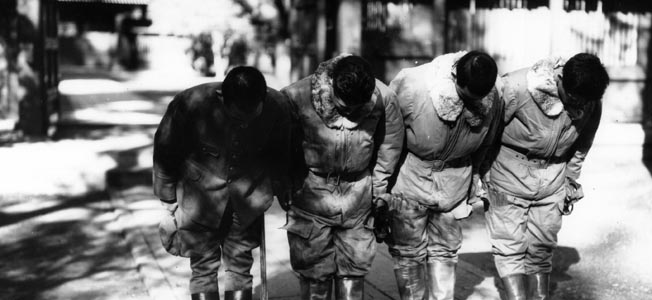
WWII
War on Civilians
The fire-bombing raids on Japan constituted all-out war on a civilian population. By Sam McGowanIt was a method of warfare that would have been anathema to Americans only a few short years before. Read more
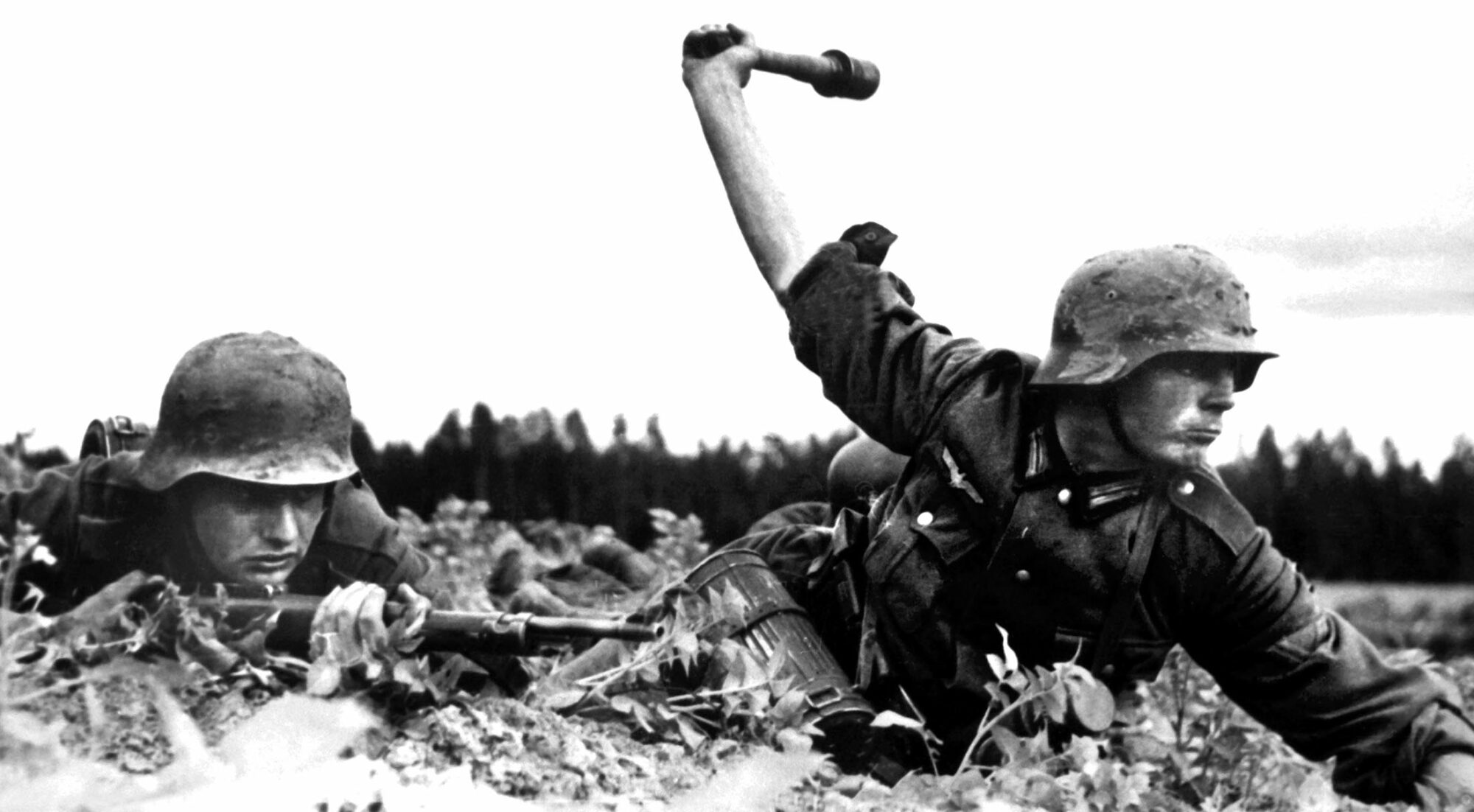

WWII
It was a method of warfare that would have been anathema to Americans only a few short years before. Read more
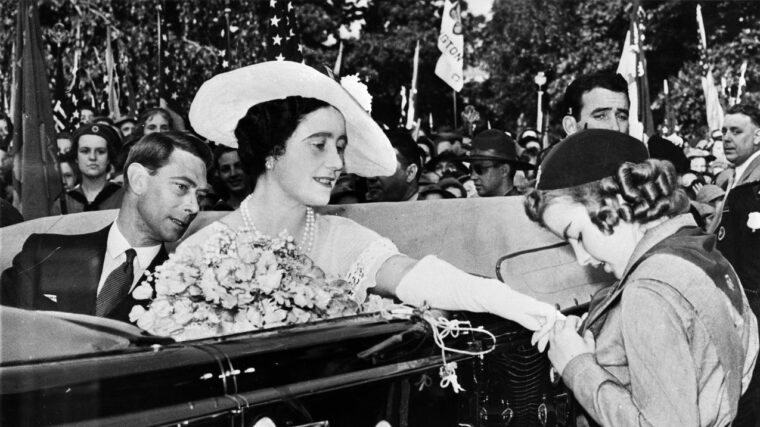
WWII
On May 6, 1939, King George VI of Great Britain and his wife Queen Elizabeth arrived in Portsmouth to board the liner Empress of Australia, which was to take them to Canada and subsequently to the United States. Read more
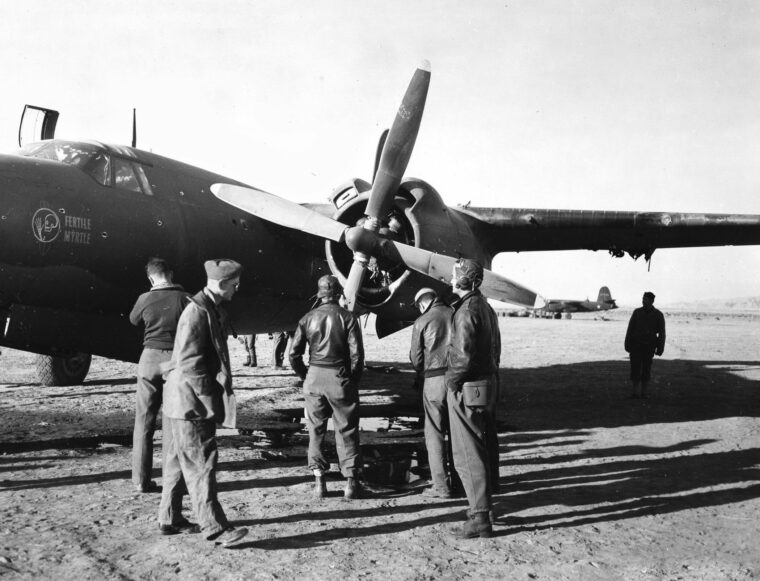
WWII
The first good news in the war for the United States had been the Doolittle Raid on April 18. Read more
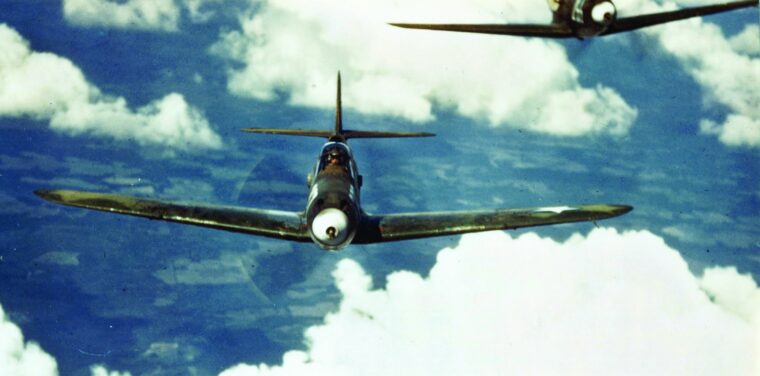
WWII
Common wisdom has long held that Japanese pilots and aircraft, particularly their fighters, were superior to the American, Australian, and British counterparts they faced in combat in the Philippines and Southeast Asia in the opening months of U.S. Read more
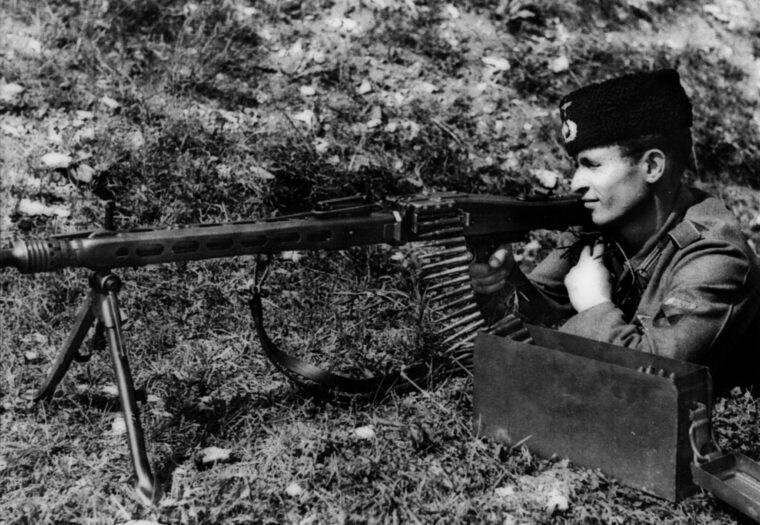
WWII
An estimated four million Red Army soldiers were captured by the Germans during the six months after the launching of Operation Barbarossa, the Nazi invasion of the Soviet Union, on June 22, 1941. Read more
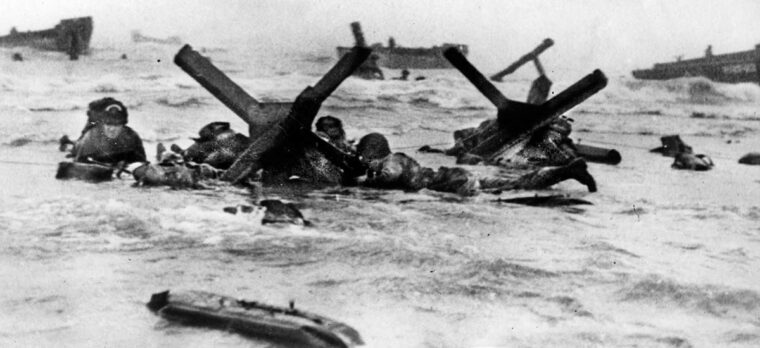
WWII
Nineteen-year-old army combat engineer Jay Rencher blinked the salt spray from his eyes, filled his lungs, and again plunged beneath the cold, roiling waves. Read more
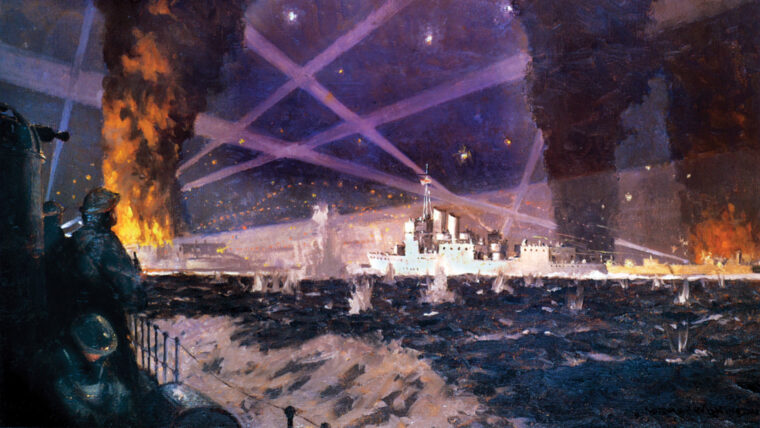
WWII
Britain badly needed a victory. As if to underline Britain’s difficult fortunes, on May 21, 1941, the German battleship Bismarck and heavy cruiser Prinz Eugen dealt the island kingdom a serious blow by sinking the battlecruiser HMS Hood and severely damaging the new battleship HMS Prince of Wales during a furious engagement in the Denmark Strait. Read more
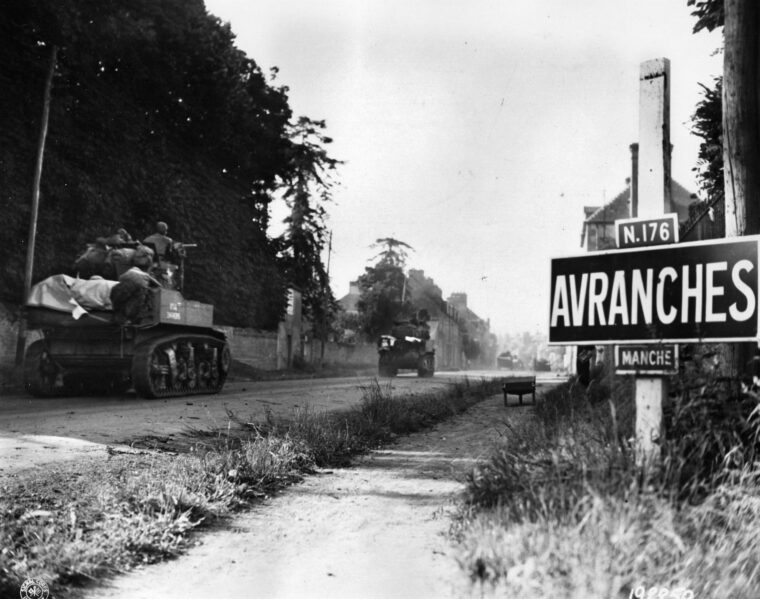
WWII
Lieutenant General Omar Bradley had reason to be pleased by the last week of July 1944. His First Army had scratched out a substantial foothold on the Normandy coast, capturing three times more French territory than his British allies. Read more
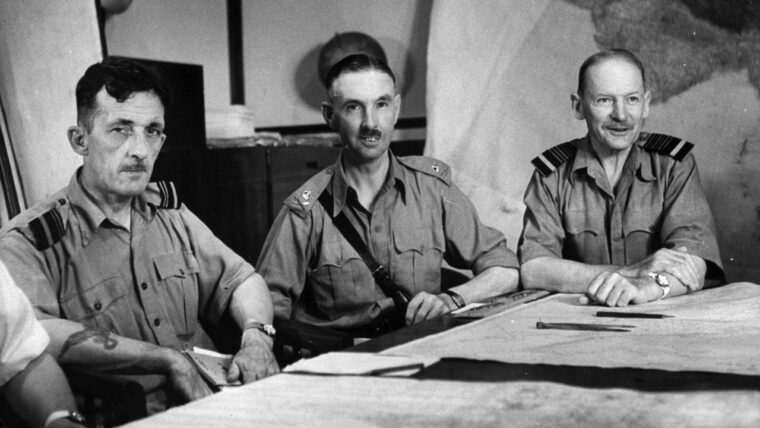
WWII
On February 15, 1942, the island fortress of Singapore surrendered with 130,000 men, thus ending the defense of Malaya as one of the largest military disasters in the history of British arms since Cornwallis’s capitulation to Franco-American forces at Yorktown in 1781 during America’s Revolutionary War. Read more

WWII
Sergeant Charles Callistan looked through the sights of an antitank gun at an approaching enemy tank. His weapon, a six-pounder cannon, was in the perimeter of a surrounded British outpost named Snipe. Read more
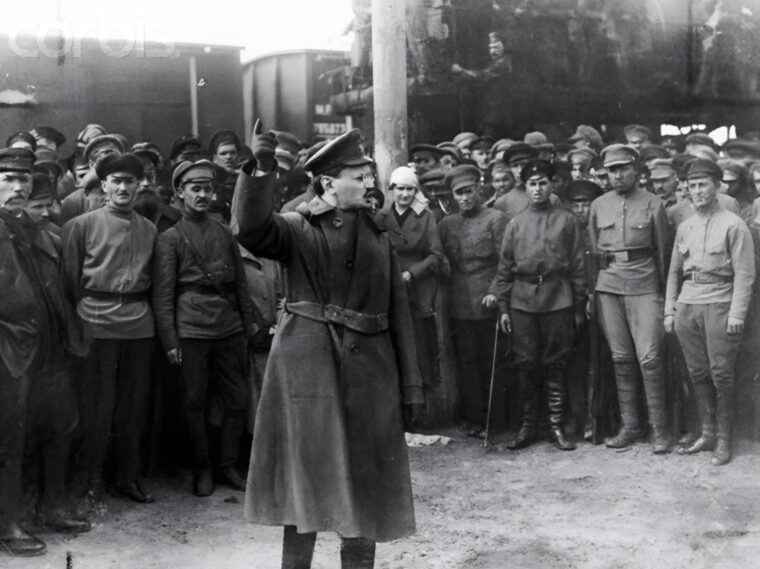
WWII
Officer corps expect to suffer heavy losses in war. The entire 1914 class of France’s St. Read more
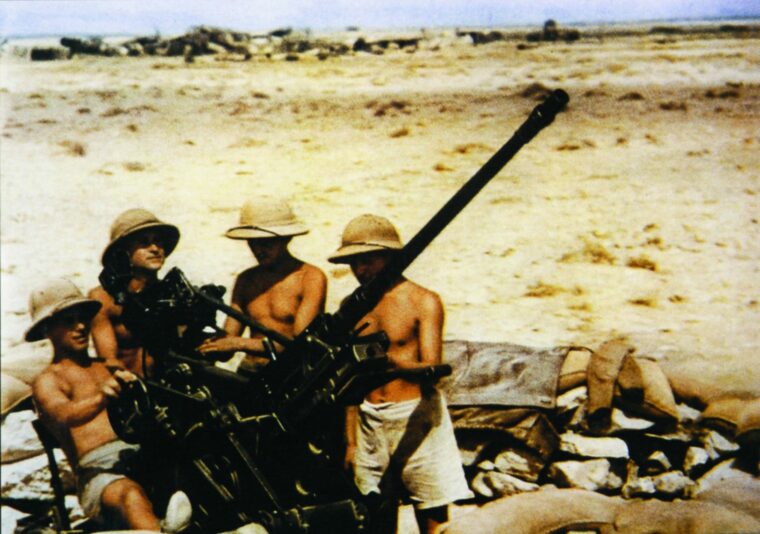
WWII
During the Allied air campaign against the Third Reich in World War II, well over a million tons of bombs were dropped on German territory, killing nearly 300,000 civilians and wounding another 780,000. Read more
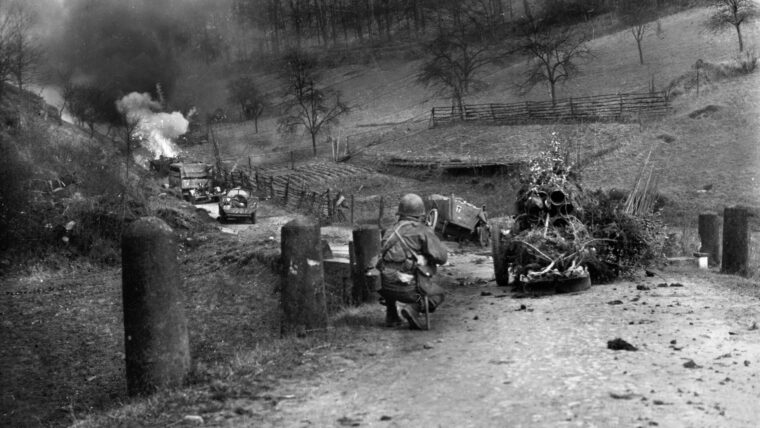
WWII
On September 5, 1944, American intelligence estimates of German forces in the sector of the 80th Infantry Division, between Nancy and Metz in northeastern France, described scattered units and limited defenses along the east bank of the Moselle River. Read more
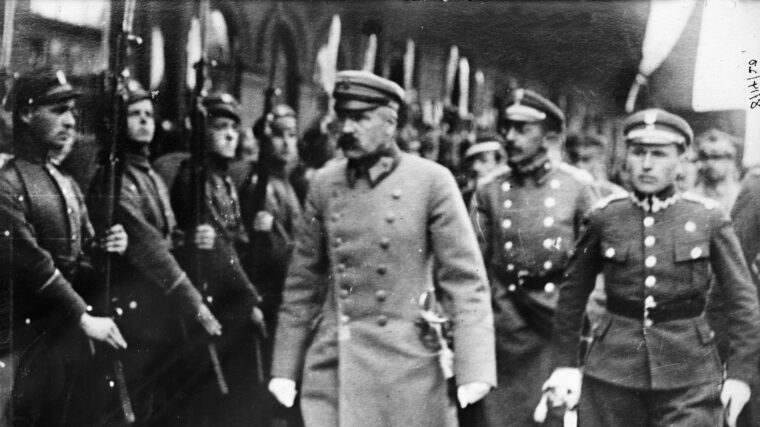
WWII
”The subject of Poland is by far the most complex of all the problems to be considered,” the American delegation to the Paris Peace Conference at Versailles was told in 1919, as it was preparing to sort out the incredible mess in European affairs following the end of World War I. Read more
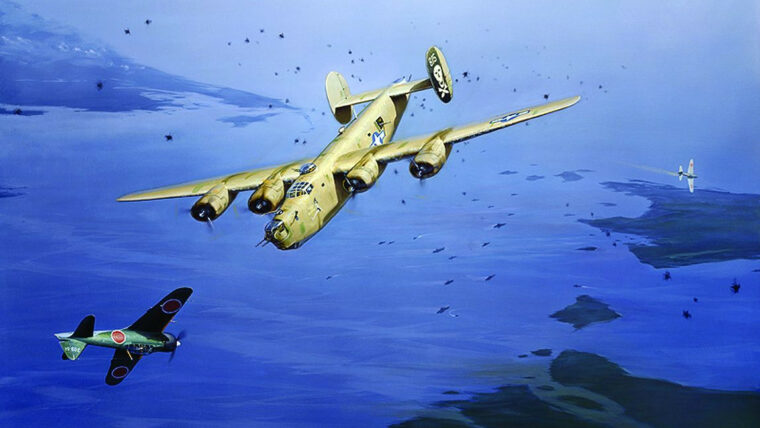
WWII
The 90th Heavy Bombardment Group, known as the Jolly Rogers, was an element of the Fifth Air Force headquartered in Brisbane, Australia. Read more
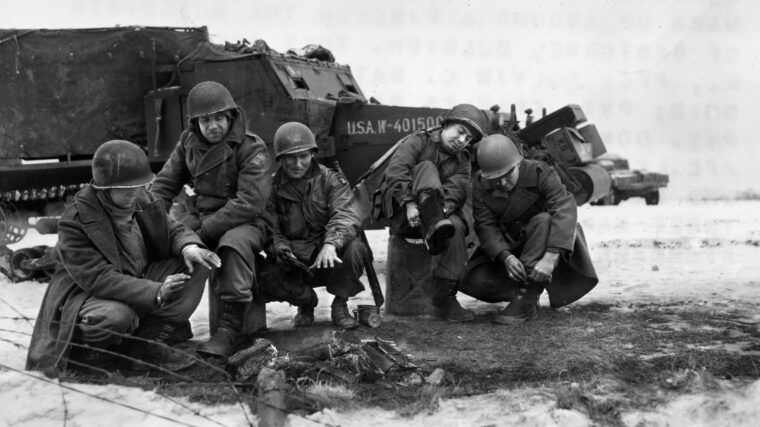
WWII
Next to sleep, warmth was the most sought after commodity of the frontline soldiers who froze in their foxholes, stomping their feet or puffing on cigarettes to keep warm. Read more
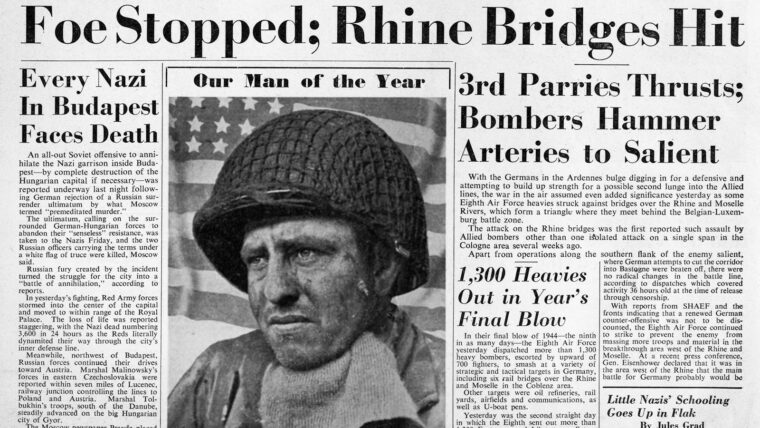
WWII
During the closing days of 1944, editors at the London edition of Stars and Stripes decided to select a frontline GI as “Our Man of the Year.” Read more
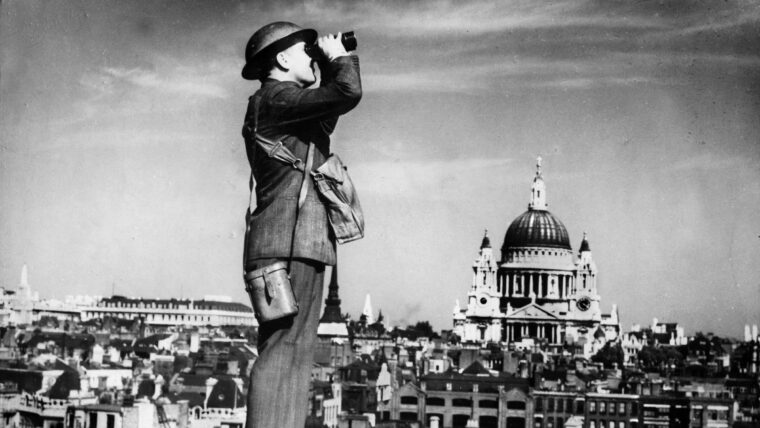
WWII
Within hours of the entry of Great Britain and France into World War II on September 3, 1939, the British liner SS Athenia was sunk by a German U-boat off the northwestern coast of Ireland, with the loss of 112 dead, including 28 American citizens. Read more
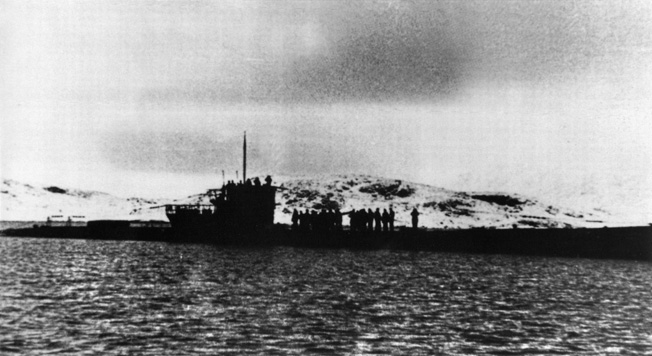
WWII
Throughout World War II the Allies enjoyed a certain advantage over the Axis that was purely the product of geography. Read more
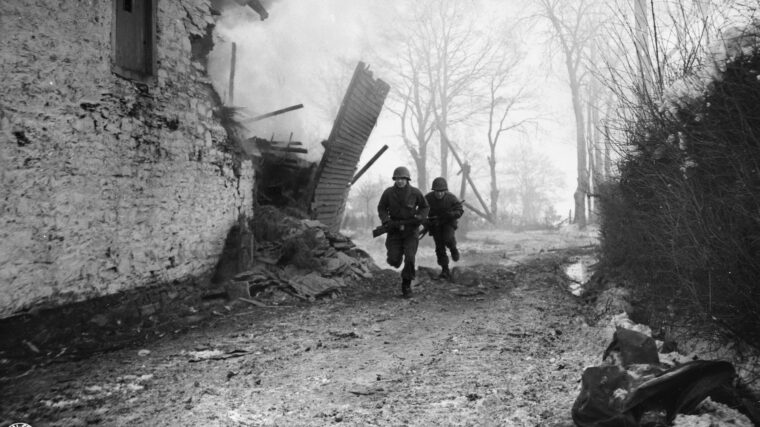
WWII
Marvie is a quiet town nestled in the Ardennes region of southern Belgium. A farming village with a population of several hundred people, history has almost forgotten the town, but on one day in December 1944, Marvie lay astride a road that led to another town—Bastogne. Read more